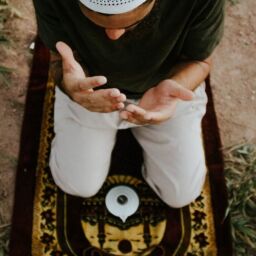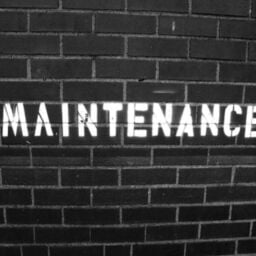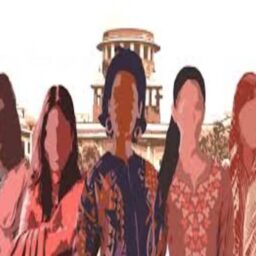Introduction
The idea of maintenance was introduced to help those people who are not capable enough to maintain themselves. It includes basic requirements. Different personal laws have different rules regarding maintenance in this article we will be talking about maintenance regarding Muslim law. ‘Nafaqa’ is the term used for maintenance under Muslim law which includes food, clothing, and lodging.
MAINTENANCE IN MUSLIM LAW
The term ‘Maintenance’ means Payments made to my husband under a legal responsibility to make to a wife, either throughout the marriage or after separation/divorce. This liability of the husband flows from the bond of matrimony. Even if the wife is rich then also a husband is bound to maintain his wife. Although his obligation exists only so long as his wife remains faithful to him. A wife does not lose her right to maintenance if: (a) she refuses to see him for legal reasons, such as when he has a concubine or is unkind to his wife, or (b) the marriage cannot be completed because (i) the husband has not reached puberty, (ii) he has been away from her without her consent, (iii) he is ill, or (iv) he has a deformity.[1] In Muslim Personal laws, the provision of maintenance is mentioned in The dissolution of Muslim Marriage Act, 1939 and Muslim Women Act, 1966. The 1st act which is mentioned above provides the grounds which a woman married under the Muslim law can use to seek dissolution of marriage with one of the grounds being “the husband has neglected or failed to provide for her maintenance for 2 years.” While the other talks about the protection of Muslim women who have been divorced or have obtained a divorce from their husbands.[2]
Maintenance can be temporary or permanent Interim maintenance is paid to cover the applicant’s financial necessities while the case is being resolved, as well as litigation costs. The amount of permanent maintenance is determined at the time the order is issued. There is no limit as to the amount of maintenance although some guidelines are there and considerations are laid down by judicial pronouncement which is significant in deciding an application for maintenance.[3] Now in Muslim Law the dissolution of Muslim marriage act, 1973 gives ground to seek dissolution of marriage to Muslim wife, if a husband neglects or fails to provide for her maintenance for two years.[4]Responsibility only lasts until the end of the iddat period, after which he is no longer liable. Iddat lasts three menstrual cycles or three lunar months after a divorce. If the wife is pregnant, the period will be extended until the delivery and termination, even if it is more than three months. If she gives birth before that time, iddat will come to an end.[5] Maintenance can be claimed by the wife under the personal laws as well as under the provisions of “Code of Criminal Procedure, 1973” wherein personal laws, an application can only be made when there have been matrimonial proceedings whereas it is not a requirement under CrPC.
In CrPC the law of maintenance is given under section 125-128 under which maintenance can be claimed by wife, children, and parents. [6] In Section 125, which deals with the order of maintenance, the term ‘wife’ includes a divorced woman, who obtained a divorce from her husband and has not remarried. Here the benefit of maintenance is only for the wife, not for the husband. The artificial relationship between the wife and her ex-husband has been formed by statute in light of the social conditions in the country to avoid quondam husbands from driving their ex-wives into poverty and misery till they remarry.[7] Thus, statutorily and judicially. the position is clear that under the existing law a woman continues to be the wife within the meaning of s. 125 even after divorce. It makes no difference whether the divorce has been obtained by her or given at the instance of the husband, or whether it is under a statute or extrajudicial.
In Zohra Khatoon v. Mohd Ibrahim, the question was “whether a Muslim wife who filed a petition for divorce against her husband, under the Dissolution of Muslim Marriages Act 1939, would be entitled to seek maintenance under the Code of Criminal Procedure, 1973”. The court held that “the expression ‘has obtained a divorce from her husband’ includes a woman who has obtained a decree of dissolution of her marriage from a court of law under the Dissolution of Muslim Marriages Act, 1939”. The wife was consequently held entitled to maintenance.[8] Here, the amount is not fixed. It may be any sum but things to be noted in this section is that if a wife is earning sufficiently, lives in adultery, or refuses to stay with her husband she cannot ask for maintenance in these cases. Now in the case of a husband’s polygamous marriage which is permissible in Islam, the CrPC entitles a wife whose husband has contracted second marriage or keeps a mistress, to live separately and claim maintenance from her husband.[9]
In Ghulam Mohd v Noorabibi the provision that CrPC is supreme between personal law and CrPC, was challenged because it was inconsistent with Muslim personal law which permitted polygamy and it was also interfering with their religious freedom and hence violating art 25 of the constitution of India. The court said that when a Muslim man marries a second wife, the first wife has a statutory right to refuse to live with him and has the right to maintenance under section 488.[10] However, with the Supreme Court judgment in Sabani alias SairaBanu v. A.M. Abdul Ghaffar, the issue stands settled. The court has held that the defence of personal law permitting second marriage to a husband was not available and the provision was uniformly applicable to all husbands and wives.[11]
In Mohd Ismail v. Bilquees Bano the Allahabad High Court held that even though the Muslim personal law permits a husband to take another wife, he must create an atmosphere for an amicable and peaceful living of the wives. When the second wife alleged ill-treatment and left the home and the husband acquiesced in her living separately, she was held to be entitled to maintenance. The husband’s plea that she knew that he had another wife with whom she would have to adjust was not accepted.[12] Whether a husband marrying again or keeping a mistress would ipso facto or per se give ground to the wife to live separately and claim maintenance under the provision was a controversial issue. In some cases, it has been held that the mere fact that a husband has contracted a second marriage or has kept a mistress, by itself is not a valid ground for claiming maintenance if the husband has not otherwise neglected or refused to maintain her. In others, it was held that no other ground for refusal to live with the husband needs to be looked into if there is a good ground of the husband’s contracting another marriage. The mere fact of second marriage would seem to be enough jurisdiction for the wife to claim separate maintenance.[13]
MAINTENANCE OF CHILDREN
The obligation of parents to maintain their children arises both out of blood relationship as well as a moral duty which is governed by their laws as well as the secular law which is Code of Criminal Procedure. 1973. In Muslim law, a father is entitled to maintain his sons until they have attained the age of puberty which is 15. He is not bound to maintain his adult sons unless they are disabled by any disease. In the case of daughters, the liability extends till they are married. If the father is poor and unable to support his family via his labour, the woman, if she is fortunate, is obligated to care for her children in the same way that the father would. If the father is poor and infirm, and the mother is likewise impoverished, the grandfather, if he is in good health, is responsible for the children’s upkeep.[14]
MAINTENANCE OF PARENTS
The moral duty to maintain parents is recognized by all the people. Although the position and extent of liability differ in personal laws. In Muslim Law, children must maintain their aged parents. Under Hanafi law, Parents and grandparents are entitled to maintenance from their children and grandchildren who have means, even if they (parents and grandparents) can earn their livelihood. As between parents, under the Hanafi law, the mother has a preferential right as against the father, to be maintained by her children. Under the Shia law, however, the right of both the parents is equal and if necessary the maintenance allowance must be divided between the mother and father equally.[15]
CONCLUSION
Thus, from the above article, we can say that provisions for maintenance are different in Muslim law as compared to other personal laws but a successful step was taken by the union government in 1973 by introducing “the Muslim Women (Protection of Rights on Divorce) Act, 1986” by which the parliament went one step farther by incorporating the provision of maintenance under “chapter IX of the code of criminal procedure, 1973” into the legislation under Muslim law. “The code of criminal procedure, 1973” being a secular law governs all the people belonging to all religions. As we know Muslim law allows polygamy but if the wife is unhappy with the second wife and wants to claim maintenance then the husband cannot say that his law allows polygamy. In such a case, CrPC will be given consideration and the wife will be entitled to claim maintenance. Provisions for Maintenance to children and parents are also provided under Muslim law as well as CrPC.
Author(s) Name: Rithik Gullaiya (Symbiosis Law School, Noida)
References:
[1]Dr. Paras Diwan, Family law, 25th edition, 2021
[2]Prof. Kusum, Family law Lectures- Family Law I, Fourth Edition 2015.
[3]Ibid.
[4]Dissolution of Muslim marriage act, 1973, Section 2 (India).
[5] Supra note 1
[6]The Code of Criminal Procedure, 1973
[7]The Code of Criminal Procedure, 1973, Section 125.
[8] Zohra Khatoon v. Mohd Ibrahim, AIR 1981 SC 1234
[9]The Code of Criminal Procedure, 1973, Section 125 (3).
[10] Ghulam mohd v.Noorabibi, 1971 Cr Lj 1625 (J&K).
[11]Sabani alias SairaBanu v. A.M. Abdul Ghaffar AIR 1987 SC 1103.
[12]Mohd Ismail v. BilqueesBano 1998 Cr Lj 2803 (All.).
[13]Supra Note 2.
[14]Mulla, Principles of MahomedanLaw,22ndEdtition1972.
[15]TyabjiMuslim Law, Fourth Edition, 1968













